Posts tagged Genome
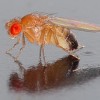
Model Organisms
Oct 12th
I asked a group of 5th graders the other day whether or not we can learn anything from studying other living things. For example, if we mutate or change the DNA of another organism, like fruit flies (D. melanogaster), can we learn anything about what can happen when human DNA changes? For this particular class, it seemed to be an absolutely absurd question. This could have been because the thought of fruit flies made them ill right before lunch, or they were unsure about how much we have in common with fruit flies.
So we got into a discussion about model More >

Fighting Addiction
Aug 13th
Having an addiction can be devastating, to those that have it and to those that are exposed to it. The addiction can be to a variety of different things such as alcohol, drugs, gambling, internet shopping, video games or even work. But what causes these addictions? Why do some people have the ability to enjoy these things, yet leave them, while others seem to never be able to stop?
Well, it could be your family and it could be your environment. Studies have shown that addictions run in families. In fact, if a parent has an addiction, the child is 4 More >
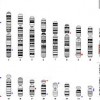
Human Genome Project
May 25th
The initial goal of the Human Genome Project was to find, map and sequence all of the genes within the human genome. Since the completion of the initial draft back in 2000, the White House predicted that this would lead to a new era of molecular medicine, bringing new ways to prevent, diagnose, treat and cure disease.
It has been amazing to see what we have learned since then, but even more interesting to think of where this could go in the future. Hopefully soon we will be able to apply this on a more individual basis, with people being able to More >
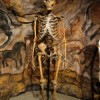
Neandertal DNA and Proteins
May 19th
With the completion of the Neandertal genome by the team of Dr. Svante Paabo and a closer look at their proteins by Gregory Hannon’s team at CSHL, scientists reveal incredible similarities between Neandertals and humans.
Neandertals, the extinct species of what are most likely our closest relatives, lived on earth at the same time as our human ancestors but died out about 30,000 years ago. With the sequence of their genome now complete, we can compare the DNA to humans and chimpanzees to learn more about what makes humans unique as a species.
The discovery of fossils is an exciting link to More >
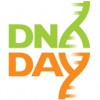
DNA DAY 2010: What, me worry about my DNA?
Apr 29th
Of course, everyone asks me what I think about National DNA Day, to which I usually reply, “Every day is DNA Day at the DNA Learning Center.”
DNA is business as usual for me and legions of genetic researchers and counselors, but its also becoming business as usual for a lot of average people who are interested in their health or genealogy.
People also often ask me how I feel about all the personal DNA data that is becoming available. To which I usually reply, “I’d be a lot more concerned about losing a credit card or my social security More >

Genetic Codes for Skin and Lung Cancer have been Busted!
Dec 22nd
“Cancer is a leading cause of death worldwide and claims more than 7 million lives each year according to the World Health Organization.”
Cancer cells have mutations in their genes that render them unable to respond to signals that regulate cell division. These cells grow uncontrollably and can invade normal tissue in other locations of the body and cause disrupted functions of major organs. This is why cancer is so deadly.
A mutagen is a physical or chemical substance that can alter genetic material in cells. DNA can be damaged or changed (mutated). Cancer cells have changes in the genes themselves. These changes More >
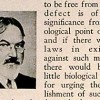
Hybrid Vigor in Corn and People
Nov 30th
The recent completion of the maize (corn) genome sequence gives us pause to think about the historical connection between agriculture and eugenics. It also causes us to consider why the leading American eugenicist, Charles Davenport, failed take greater stock in the corn research going on at one of several institutions he presided over at Cold Spring Harbor.
Especially in the United States, eugenics was firmly grounded in agriculture. Many of the leaders of the American movement had backgrounds in plant and animal breeding. For example, prior to becoming superintendent of the Eugenics Record Office (ERO) at Cold Spring Harbor, Harry Laughlin had More >
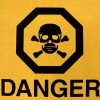
Medicine or Poison? It’s in Your Genes, duh…
Sep 24th
As the ongoing deciphering of the human genome provides us with more and more insights about our predisposition for diseases and genetic disorders, (see Your Genes Your Health for examples) I am equally, if not more astounded by what it tells us about our ability to utilize medicines to counteract diseases.
Just recently, a group of researchers at the University of Maryland School of Medicine have identified a variant of a gene that is believed to play a major role in determining why people do not respond to a popular anti-clotting medication. This gene variant, carried by as many as a third More >
